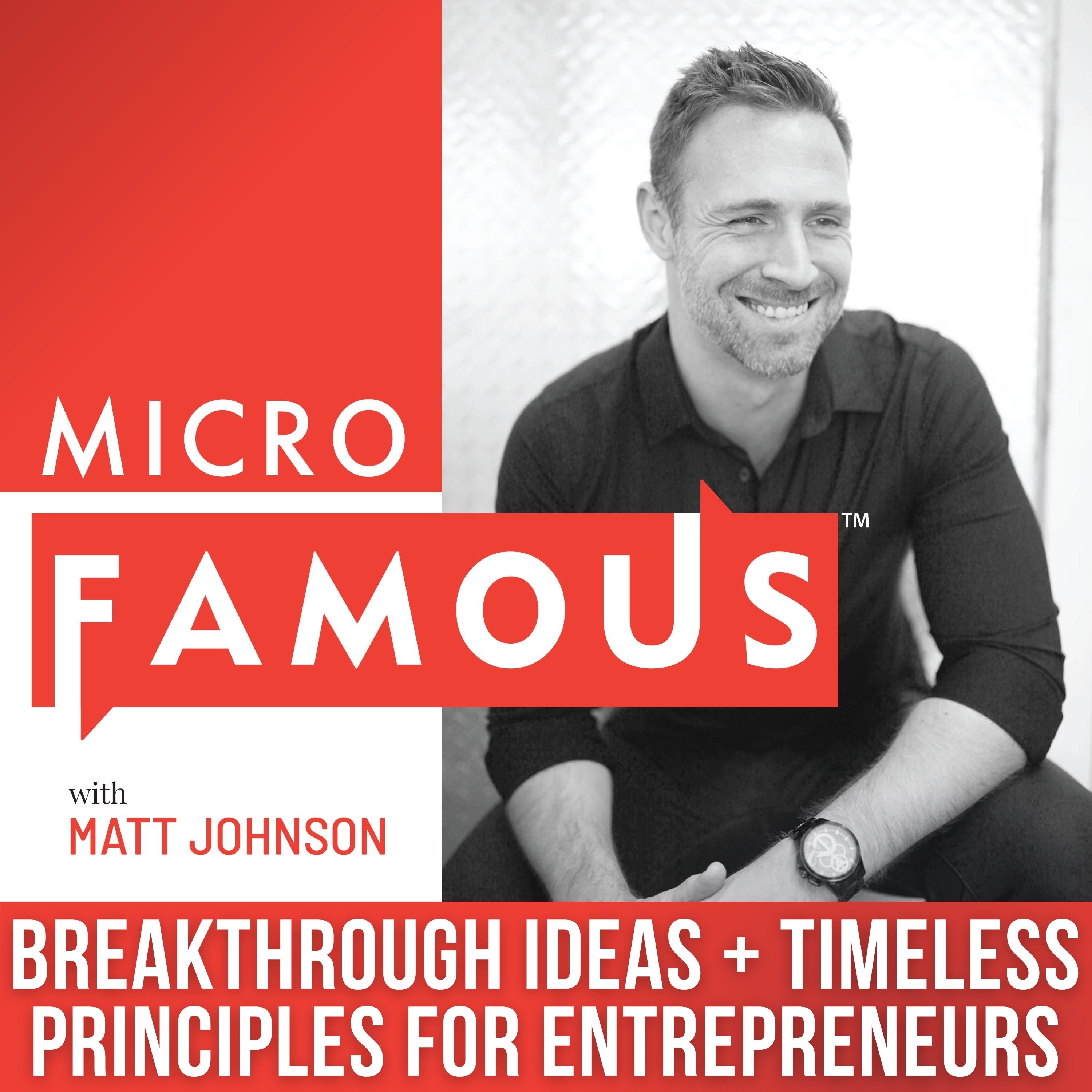Should You Offer Paid Podcast Content? What Coaches & Consultants Need to Know Right Now About Paid Subscriptions
Description
With Apple releasinghttps://podcasters.apple.com/878-subscriptions ( paid and freemium podcast subscriptions), there’s a lot of talk in the podcast world about this new option for monetizing podcasts.
So this is a perfect opportunity to cover an idea I’ve talked about behind the scenes but isn’t in the MicroFamous book (at least, not this current version).
There’s a big difference between a product that helps you build demand for you, versus a product that harvests demand that already exists.
Let’s give a couple examples.
Dan Kennedy tells a story of him taking his personal swipe file and offering it to his email list and making a quick 6 figures, then offering it out through affiliates and making another quick 6 figures.
What gets left out of that story is all the years he spent investing in that email list.
Sending out high-value content.
Making promises and then keeping them.
Building trust over time.
Then he can release a product that capitalizes on the demand and trust that already exists.
If no one knew who Dan Kennedy was, no one cares about his swipe file and he doesn’t make multiple 6 figures off that product.
Let’s look at another example, the rise ofhttps://substack.com/ ( Substack) and alternative journalism.
Take someone likehttps://greenwald.substack.com/ ( Glenn Greenwald), now an independent journalist, but in the past someone who contributed to big name outlets like the Guardian and the Washington Post, where he won a Pulitzer Prize, then went out to found the Intercept.
Now he publishes on Substack, a platform for paid newsletters.
Estimates are that he has 20k-40k subscribers each paying at least $5 a month, which puts his yearly earnings around 2 million.
With podcasting opening up the option for paid subscriptions, we’re going to see some similar success stories in that space.
Here’s my opinion: Paid subscriptions capitalize on existing demand. They don’t carry the heavy lifting of creating new demand.
So should an expert - like a coach, consultant or business book author - jump into the world of paid subscriptions?
It depends on whether you have an existing audience or not.
What we forget about folks like Glenn Greenwald is that they spent years writing for big name publications, going on TV, writing books or speaking.
They spent years, maybe even decades building their influence, creating trust, gaining notoriety, attracting attention, getting their content in front of thousands, maybe even millions.
So unless you have already done that, remember that the economics of paid subscriptions may not be in your favor.
In my point of view, paid subscriptions are like harvesting a crop you’ve been growing all season.
But it doesn’t plant new seeds.
So the success stories we’re about to hear in paid subscriptions will probably be those who already had an audience.
They are “harvesting” from the crop of fame, influence and demand they built over years.
Demand is how much of YOU people want.
When there’s more demand for you than supply, you can harvest that demand in different ways.
You can launch a book or an online membership.
You can raise your speaking fees or your coaching fees.
You can launch certifications or group coaching where your involvement is minimal
Why? Because there’s more demand for you than supply.
What if you don’t have that level of demand yet?
What if you’re still in the phase of attracting an audience and becoming MicroFamous in your space?
Then my advice is that you’re just in a different season. It’s your time to plant, not harvest.
And this is important because a detour into paid subscriptions has consequences.
When you release a harvesting type product without a high level of demand, you’ll put a ton of effort into something that only a small portion of your audience signs up for.
Which means you aren’t making Glenn...
More Episodes
For creative entrepreneurs, there’s always a tension between the creative projects we want to undertake, and the need to make it easy for people to understand the niche we fit into.
It doesn’t make sense for us to be everything to everyone, but niching down is challenging because it feels like...
Published 06/02/22
Published 06/02/22
Joe Rogan is the exception that proves the rule.
For every 3 hour episode of Joe Rogan, there's a podcast that is shortening up their average episode.
And rightfully so, I think.
We're going on 10+ years of long-form interview podcasts, and the format itself is no longer rare and...
Published 05/19/22


